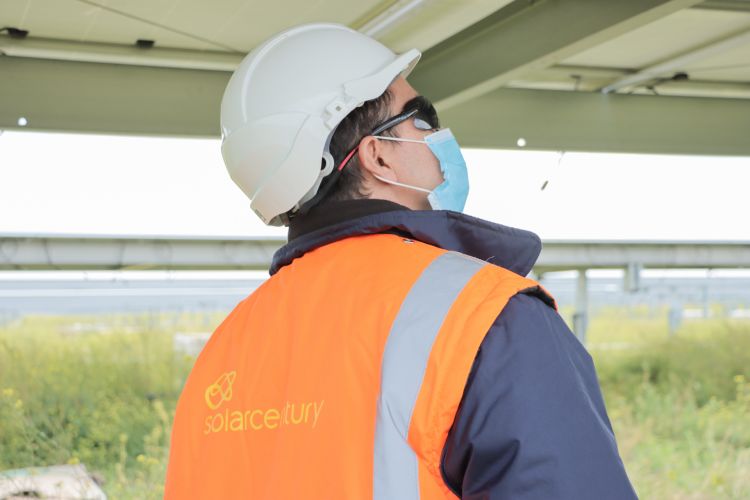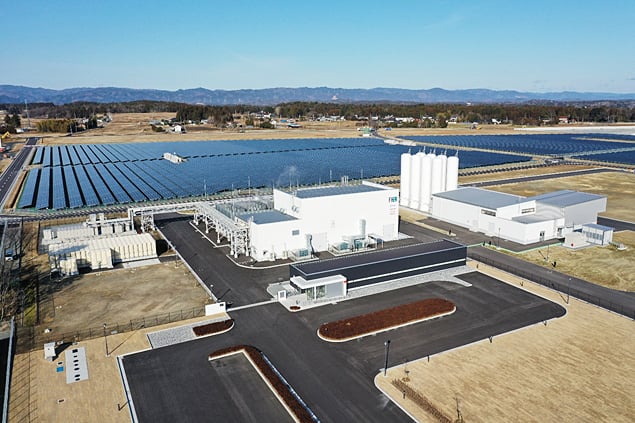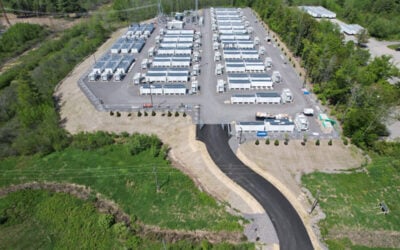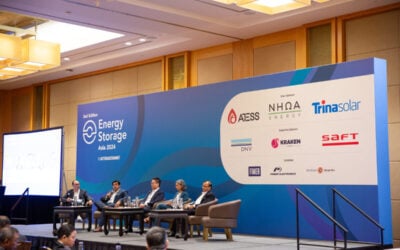
Renewable energy uptake and the falling costs of battery energy storage are “inexorably linked” as the global economy faces a crucial decade ahead in its urgent need to decarbonise, according to work by McKinsey & Company.
Bram Smeets, an associate partner at the prominent management consultancy group told Energy-Storage.news that continuously falling battery prices will enable the rapid growth of renewable energy capacity. McKinsey’s Global Energy Perspective 2021 report was published earlier this month and predicts that, with many of the world’s leaders putting policies in place to support decarbonisation and technology costs falling, renewable energy will make up around 55% of global power generation by 2035.
Demand for oil and gas around the world may rebound when the COVID-19 pandemic finally ends but are likely to never recover to pre-pandemic levels of growth, while renewable energy combined with battery storage is becoming increasingly cost-competitive with fossil fuels. As reported last week by Solar Media’s energy transition website Current±, McKinsey predicted that the share of energy consumption made up by electricity will rise considerably from 19% today to 30% by 2050, with renewable energy dominating that scene from 2030 onwards.
The report looks at a wide range of issues, from an expected peak in fossil fuel demand in 2027 – earlier than previously thought and partly due to the impact of COVID-19 on energy demand – and long-term behavioural shifts such as the trend towards electric vehicle use and falling car ownership overall.
Try Premium for just $1
- Full premium access for the first month at only $1
- Converts to an annual rate after 30 days unless cancelled
- Cancel anytime during the trial period
Premium Benefits
- Expert industry analysis and interviews
- Digital access to PV Tech Power journal
- Exclusive event discounts
Or get the full Premium subscription right away
Or continue reading this article for free

Decarbonisation is a recognised global policy aim but ‘not enough is being done’
Energy-Storage.news asked McKinsey & Company’s Smeets to highlight specifically where the consultancy firm sees batteries and other energy storage within that bigger picture. Decarbonisation, the rise of renewable energy and “sliding battery costs” are “inexorably linked,” he said.
“The rapid rise of renewables; making up ~55% of global power generation by 2035 globally, as shown by [the] McKinsey Global Energy Perspective 2021 [report], will be enabled by a continuous fall in battery prices. McKinsey’s extensive work in the battery space, based on multi-dimensional analysis of technology innovation, value-chain integration, electrification across sectors and new financial solutions that bring down cost of capital, highlights cost reductions to the extent of ~90%.”
McKinsey’s analysis asserted that the world remains on a dangerous tangent, whereby the reduction in global emissions of more than 50% by 2030 that are required to achieve the 1.5ºC limit on global temperature rise by 2050 over pre-industrial levels is possible. However, “not enough is being done,” the report said. The report includes several scenarios that the group modelled, including a base case ‘Reference Case’ and a ‘1.5ºC Pathway’ which would assume the political will exists for that decarbonisation trajectory’s achievement.
Associate partner Bram Smeets said that stronger decarbonisation targets would also lead to even more increase in the demand for battery storage: “…if stronger decarbonisation targets are set, for example our Net-zero Europe report shows that the EU would need to increase its battery storage capacity to 25GW by 2030, and to more than 150GW by 2050 in order to be carbon neutral,” Smeets said.
While in the energy sector McKinsey found that half of global power is likely to come from renewable sources by 2036 and this will be largely enabled by batteries, there will still be a role for some fossil fuel assets, such as gas peaker plants in the sector. A mix of such “traditional” capacity and “new, flexible capacity” such as battery storage will be needed to enable a global shift to variable or intermittent renewable energy generation while maintaining and ensuring system security.
Yet McKinsey’s Bram Smeets also said that there is likely to be an important role for other technologies in the mix: most notably hydrogen. Several governments around the world have strongly backed the potential of hydrogen and while green hydrogen electrolysed using renewable generation remains expensive, there is a growing belief that it will become increasingly economically feasible towards the end of this decade. The role of hydrogen could be most significant in sectors where the abatement of carbon emissions is particularly difficult, Smeets said.
“As much as battery storage technology is essential in the decarbonisation efforts, in our 1.5ºC Pathway analysis, we also see an increasing role of hydrogen that could be used to decarbonise hard-to-abate sectors such as industrial processing and double up as a long-duration storage solution in the power sector.”
Our publisher Solar Media is hosting the Energy Storage Summit 2021 in a new and exciting format, on 23-24 February and 2-3 March. See the website for more details.





